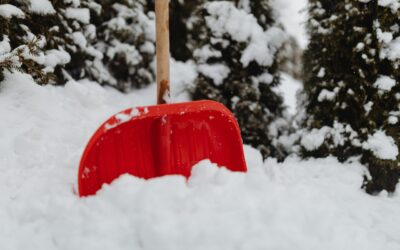Water is life. We can’t live without it. Yet, our finite water resources are being rapidly depleted and polluted. Although water is a renewable resource, we use water at a greater rate than it can replenish itself naturally.
It’s also important to reduce the run off from our properties as rainwater running through our gutters and our lawns picks up fertilizers, poisons and animal excrement. Once it flows to the street, it picks up more pollutants. Think of the black snow that accumulates on your car in winter.
Water must be treated before we use it and again after we use it. Reducing our use of water saves not only water but also the energy required to treat that water. Let’s do what we can to conserve this valuable resource.
REDUCE YOUR HOME WATER CONSUMPTION
- Install low flow shower heads.
- Save up to 12 gallons of water with short showers.
- Install low flow toilets or retrofit with a dual flush insert.
- Use aerators on your faucets.
- Check for leaks and repair promptly.
- Don’t keep water running while brushing teeth or washing hands and dishes.
- Reduce lawn and garden water use.
CONTROL WATER RUN OFF TO REDUCE FLOODING
- Use rain barrels to capture water for use in your garden or elsewhere. One inch of rain can equal 600 gallons of water. When this rain is captured in a rain barrel it reduces run off and saves water. Rain barrels should be raised as they use gravity to dispense water. You can connect them to a soaker hose so they can slowly and efficiently water your plants or vegetable garden.
- Disconnect downspouts feeding water into the sewer and reroute away from the foundation. You can use either a gutter extender or an underground pipe.
- Plant a rain garden so that the plant roots soak up rain water reducing or preventing run off.
- Plant native flowers and trees.
- Use permeable pavers instead of asphalt or concrete for driveways, patios and walkways.
DON’T FLUSH DRUGS DOWN THE TOILET
- Prescription and over the counter drugs pollute our water. Only about half the drugs flushed down toilets are removed in water treatment plants. To protect our water, you may take drugs to the Wilmette Police Station at 710 Ridge Road any time. Keep them in the original containers but black out your name for privacy.
USE GREEN LAWN CARE PRACTICES
- Don’t use chemical fertilizers or pesticides on your lawn or allow your lawn service to do so. Use safer, “green” treatments instead.
- Reduce lawn and garden water use.
USE NATURAL PRODUCTS AND REDUCE YOUR USE
- Use safe and biodegradable products for your soaps, detergents (phosphate free), and fertilizers.
- Use less of all products that enter our water system.
DON’T BUY PRODUCTS WITH MICRO BEADS
- Microbeads are tiny pieces of plastic that are in many personal care products, especially exfoliants and scrubs but also found in sunscreen, toothpastes and other products.
- These microbeads are so small that they are not filtered out in the water treatment systems and are returned to our lakes and rivers. They add to plastic pollution and are very harmful to marine life.
- Call the customer service number on most personal care products to ask if it contains microbeads.
- Let the manufacturer know that microbeads are a serious problem.
IT TAKES A VILLAGE
- Encourage your Village Board to employ green infrastructure solutions to mitigate storm-water damage and to help residents do the same.
EAT LESS MEAT
- A pound of beef can take up to 18,000 gallons of water to produce.
RESOURCES
http://wateruseitwisely.com/100-ways-to-conserve/
http://environment.nationalgeographic.com/environment/freshwater/water-conservation-tips/
http://www.nwf.org/How-to-Help/Live-Green/Water-Conservation.aspx
http://eartheasy.com/live_water_saving.htm
http://www.epa.gov/watersense
http://www.waterfootprint.org
Friend of the Chicago River Water Conservation Guide

